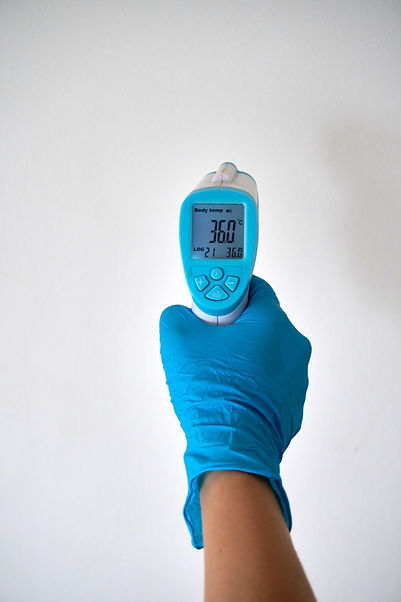Vitals & Measurements
Vital signs are the measures of a person's basic body functions. When you visit the doctor, the basic vital measurements monitored include body temperature, pulse rate, respiration rate, and blood pressure. The signs can be monitored in any environment such as at a medical center or at home.

Body Temperature
-
A normal body temperature can range from 97.8 degrees Fahrenheit (36.5°C) to 99 degrees F (37.2°C)
-
Temperature can be taken orally, rectally, axillary, by ear, by skin
Pulse Rate
-
This is the measurement of how many times the heart beats per min
-
normal pulse for healthy teens ranges from 60 to 100 beats
Respiration Rate
-
the number of breaths a person takes per minute
-
Normal respiration rate for healthy teens is 12 and 20 breaths per minute
Blood Pressure (BP)
-
force of the blood pushing on the artery walls heart contraction and relaxation
-
Normal BP for healthy teens is less than 120/80 mm Hg
The Teen
Connection
Why does it matter for teens?
Understanding vital signs is important for teens as it helps them keep track of their basic bodily functions. By doing this, they can detect any potential issues in their health and make informed decisions about their wellbeing. Teens deal with sports, school stress, and getting sick sometimes, so it's helpful to know basic body signs to understand what’s normal and when something might be wrong.
How It Affects You
“Feel super hot after the gym and wonder if it’s a fever?”
“Ever felt dizzy after standing up too fast?”
“Or had a nurse check your pulse during a school physical?”
Yep, that is your vital signs in action…
After going to the gym, feeling super hot could mean that you're getting a fever, which is a vital sign showing possible infection. Also, your pulse might be high (normal for exercise) but is important to know when your pulse is too high.
When you stand up quickly, your blood pressure can drop suddenly. This can reduce the blood flow to your brain for a few seconds, so this symptom helps show how your body is adjusting its vital signs to changes in position.
A doctor may check your pulse to measure how fast or slow your heart is beating. It helps see if your heart is working normally and whether you are feeling normal, tense, or ill.



